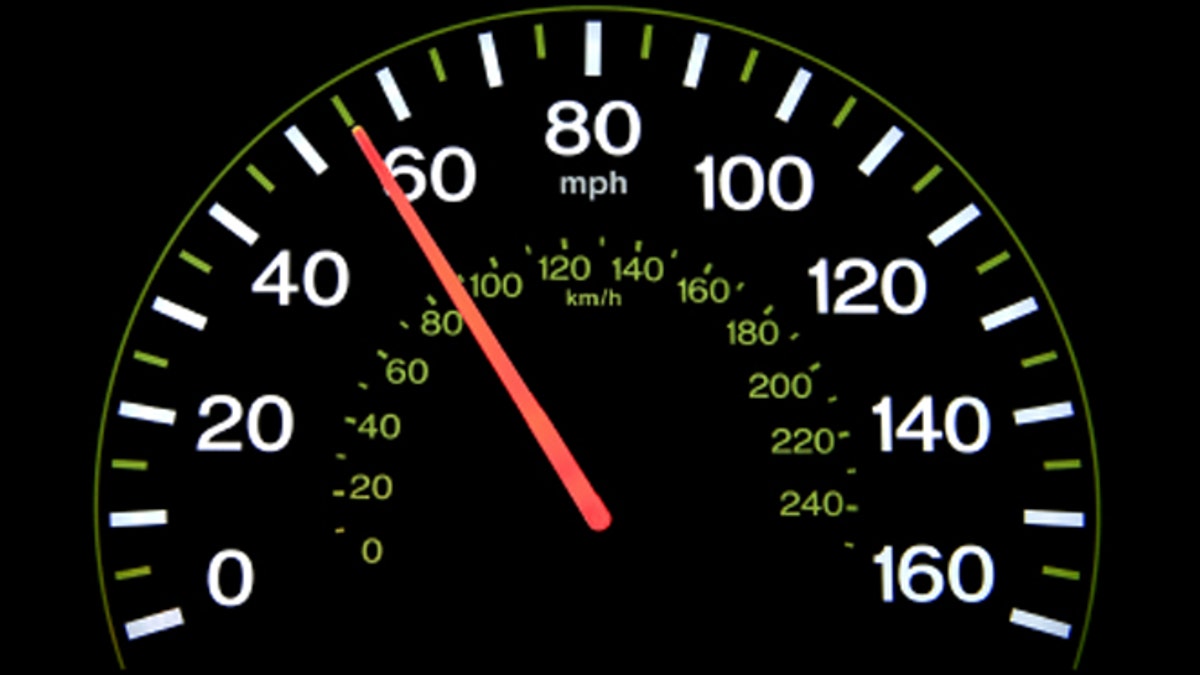
(Michael McCloskey)
You may be driving faster, or slower, than you think you are. Speedometer inaccuracies happen, and can be partially to blame for that seemingly bogus speeding ticket.
How accurate are speedometers?
Dan Edmunds, an automotive engineer and the director of vehicle testing at Edmunds.com, says that speedometers cannot have an error of more than 5 percent (typically expressed as plus/minus 2.5 percent relative to the actual speed) according to federal law.
"At 60 mph this means your speedometer should read no more than 1.5 mph higher or lower than your actual speed," Edmunds explains.
Manufacturing tolerances and difference between tire brands and air pressure can cause tire diameters to vary, which may lead to an erroneous speedometer. Automakers offer different sized wheels and tires, and, while carmakers try to match the effective rolling diameter of the larger wheels with a lower profile tire, an exact match is not always possible.
"The tires size steps are small enough that the diameter can easily be kept within a percent or two, which allows the same gearing and speedometer calibration factors to be carried over because everything still fits within the speedometer tolerance," Edmunds says.
However, Edmunds adds that any change in the effective rolling diameter caused by replacement tires will bring with it speedometer error.
How to check your speedometer
It is fairly easy to see how your speedometer compares with your actual driving speed. One way to check speedometer accuracy requires an empty, flat highway with mile markers and a speed limit above 60 miles per hour, and a friend with a stopwatch. See if it takes you exactly 60 seconds to drive one mile, using cruise control if possible. Try this a few times, getting the average and then compare the number of seconds to 60 to calculate the percent error. This may not be the most convenient way, but it could prove to be the most fun. If you are looking for an easier way, or don't have access to an empty highway, you can also check with your local AAA affiliate club to see if they offer speedometer checks, or can help you find someplace that does.
Edmunds says that outdoor GPS devices and aftermarket car navigation systems often have accurate speed functions. You can compare this reading to your car speedometer readout. There are also smartphone apps, both free and paid, that can display your speed.
Dangers of inaccurate speedometers
You do run a risk of driving too fast, which can yield serious consequences such as an accident, if you go by an imprecise speedometer. However, Edmunds says that the magnitude of error has more to do with getting a ticket.
"If you're the person who drives 5 [mph] over, and the local police allows a 5 mph overage before they write tickets, you could attract unwanted attention if, in fact, you're really going 7 or 8 mph over instead of 5 mph," he says.
An inaccurate speedometer may be a clue that your odometer is also off.
"Again, the 1 or 2 percent error that may be present on new vehicles is nothing to lose sleep over," Edmunds says, "but larger-diameter tires intentionally installed for aesthetic or off-road purposes could introduce errors that have more significance."